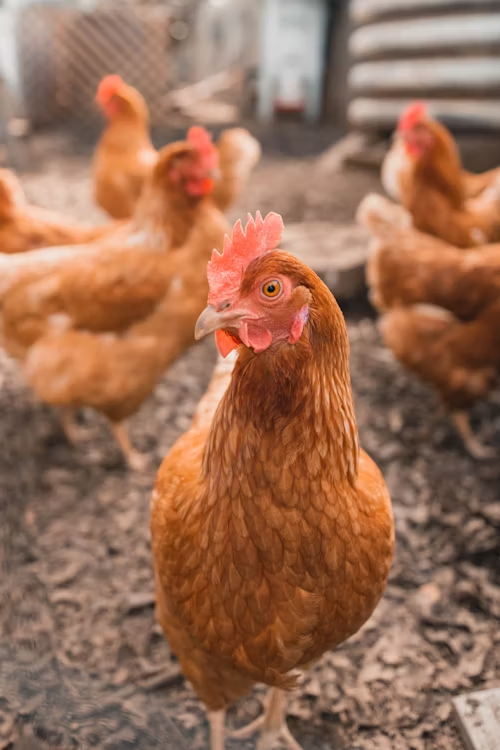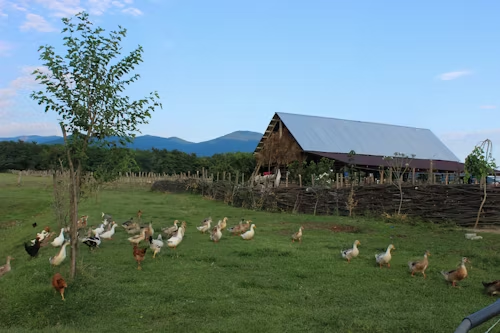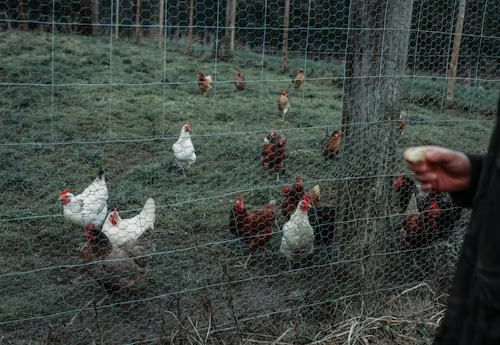Everything you need to know before bringing chickens home, from selecting breeds to setting up their living space.
So, you've decided to join the wonderful world of backyard chicken keeping! Congratulations! There's nothing quite like stepping into your yard and collecting fresh eggs from hens you've raised yourself. But before you dive in, there are a few important things to consider to ensure both you and your new feathered friends have the best possible experience.
Check Local Regulations
First things first: make sure you're allowed to keep chickens where you live. Many urban and suburban areas now permit backyard flocks, but there are often restrictions on:
- The number of chickens you can keep
- Whether roosters are allowed (many areas prohibit them due to noise)
- Coop placement and setback requirements from property lines
- Permits or licenses that may be required
Check with your local municipal office or homeowners association before proceeding. It's much better to do this research upfront than to face fines or having to rehome your birds later.
Choosing the Right Breeds
Different chicken breeds have different characteristics that may make them more or less suitable for your specific situation:
For Beginners
These hardy breeds are known for being docile, adaptable, and productive:
Rhode Island Reds
Excellent egg layers, resilient in various climates, friendly disposition
Plymouth Rocks
Good dual-purpose birds (eggs and meat), calm temperament, cold-hardy
Orpingtons
Exceptionally friendly, good layers, tolerate confinement well, make great pets
If you have children, prioritize gentle breeds like Orpingtons or Sussex varieties. For small spaces or urban settings, consider bantam (miniature) varieties or breeds that don't mind confinement.

Essential Housing Requirements
Your chickens will need a properly designed coop and run to stay healthy and safe:
The Coop
Provide at least 3-4 square feet of indoor space per standard-sized chicken. Your coop should include:
- Nesting boxes (one box per 3-4 hens)
- Roosting bars for sleeping
- Proper ventilation while being draft-free
- Protection from predators with secure doors and windows
- Easy access for cleaning and egg collection
The Run
Aim for at least 10 square feet of outdoor space per chicken. The run should be:
- Fully enclosed (including the top) to prevent predator access
- Partially shaded to provide protection from the sun
- Well-drained to prevent muddy conditions
Predator protection cannot be emphasized enough. Common chicken predators include foxes, raccoons, hawks, and neighborhood dogs. Investing in proper security upfront will save you heartache later.
Basic Supplies Checklist
Before bringing your chickens home, make sure you have:
- Feeder (hanging feeders help reduce waste)
- Waterer (chickens need clean, fresh water daily)
- Appropriate feed (starter feed for chicks, layer feed for laying hens)
- Bedding material (pine shavings work well)
- Grit (helps chickens digest their food)
- Calcium supplement (such as crushed oyster shells) for laying hens
- First aid supplies
Starting with Chicks vs. Adult Hens
You have two main options when starting your flock:
Starting with Chicks
Pros: Lower cost, opportunity to raise from day one, more breed options, greater attachment
Cons: Require brooder setup with heat source, more vulnerable to illness, 5-6 month wait for eggs, more difficult to determine gender
Starting with Adult Hens
Pros: Immediate egg production, established personalities, hardier, gender certainty
Cons: More expensive, fewer breed options, potential adjustment period to new environment
For first-time chicken keepers, starting with point-of-lay pullets (young female chickens about to start laying) is often the easiest route.

Daily Care Routine
Be prepared to establish a regular routine:
- Morning: Open coop, check water and feed, collect any eggs
- Evening: Ensure adequate feed and water, collect eggs, secure coop after chickens have gone to roost
- Weekly: Clean waterers thoroughly, refresh bedding as needed
- Monthly: Deeper clean of the coop, health check for each bird
Finding a Chicken-Savvy Veterinarian
Before you need one, locate a veterinarian who treats chickens in your area. Not all vets have experience with poultry, so it's worth making a few calls ahead of time.
Ready to Start Your Flock?
Keeping chickens is a rewarding experience that connects you to your food source and can provide years of enjoyment. With proper preparation, your backyard flock will thrive and become a delightful addition to your life.
Have questions about starting your own flock? Our premium subscribers receive access to our expert Q&A platform where you can get personalized advice for your specific situation.



Comments (3)
Lisa M.
May 17, 2023This article was so helpful! I'm getting my first chicks next month and was feeling overwhelmed. The breed recommendations and supply checklist are exactly what I needed.
David P.
May 18, 2023I wish I had read this before starting my flock last year! One thing I'd add is to really invest in predator-proofing. I lost two chickens to a raccoon before I reinforced my coop properly.
Sarah Johnson
May 18, 2023David, you're absolutely right. I'm sorry to hear about your chickens. Predator protection is definitely one of the most important aspects of coop design. We have a full article on predator-proofing coming next week!
Leave a Comment